
Hundreds of Millions of Dollars Have Been Recovered for Injured Babies and Children
"*" indicates required fields
What causes birth injuries in Elizabeth, NJ, and can they be prevented?
At The Child Injury Firm, we’ve been helping families across New Jersey for decades. We have seen how birth injuries not only change a child’s life forever but also deeply affect parents and families emotionally, financially, and medically. We believe that knowing what causes these injuries, how they happen in our city, and what you can do about them can help prevent many of them.
This post is for people in Elizabeth and nearby counties—parents‐to‐be, grandparents, those caring for infants—to give you information based on local conditions and the law, so you can be prepared and empowered.
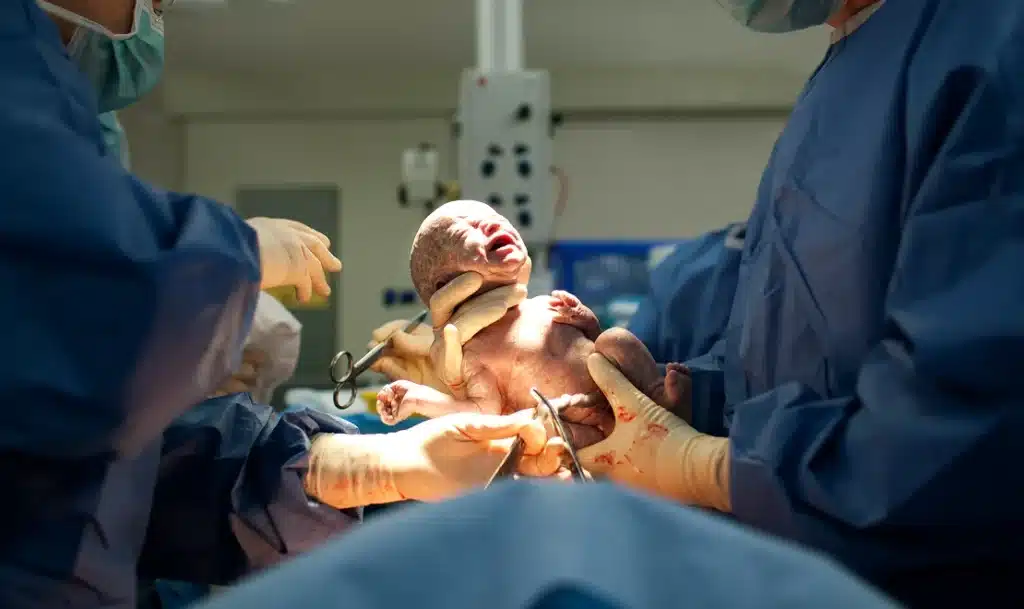
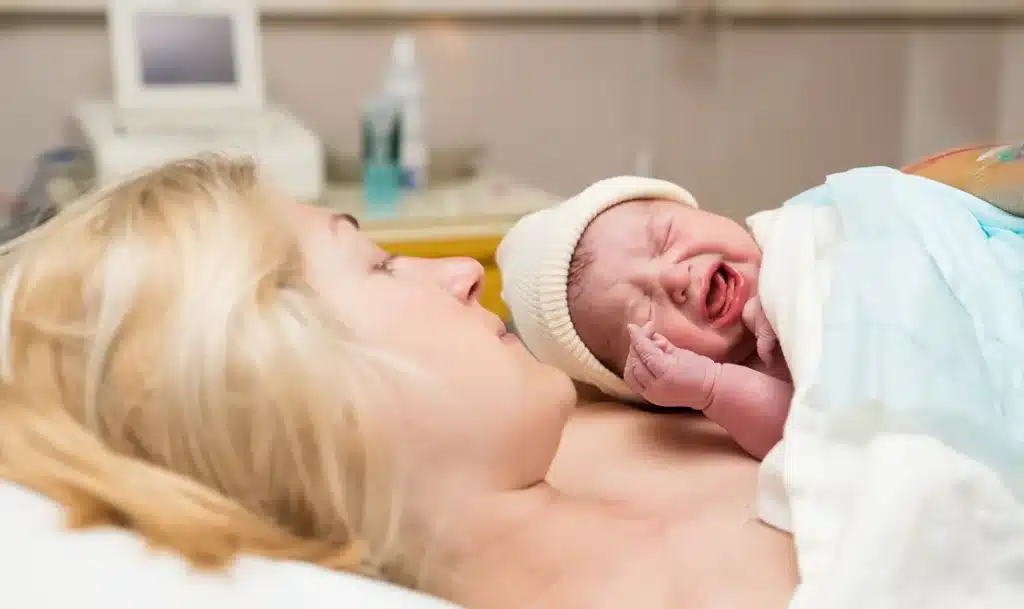
It’s difficult to find precise statistics for birth injury malpractice in Elizabeth, as hospital incident reports, insurance payouts, and lawsuit details are typically kept confidential. But we do have some data about infant mortality, preterm births, low birthweight, and maternal health in Elizabeth/Union County / New Jersey that serve as warning signs, and which help us understand where risk is significant.
Here’s what the data tells us:
In Elizabeth specifically:
These metrics (preterm births, low birthweight, infant mortality) are not the same as birth injury due to malpractice, but they’re red flags. Where these rates are higher, there is a greater risk that care during pregnancy or labor may be substandard or overburdened.
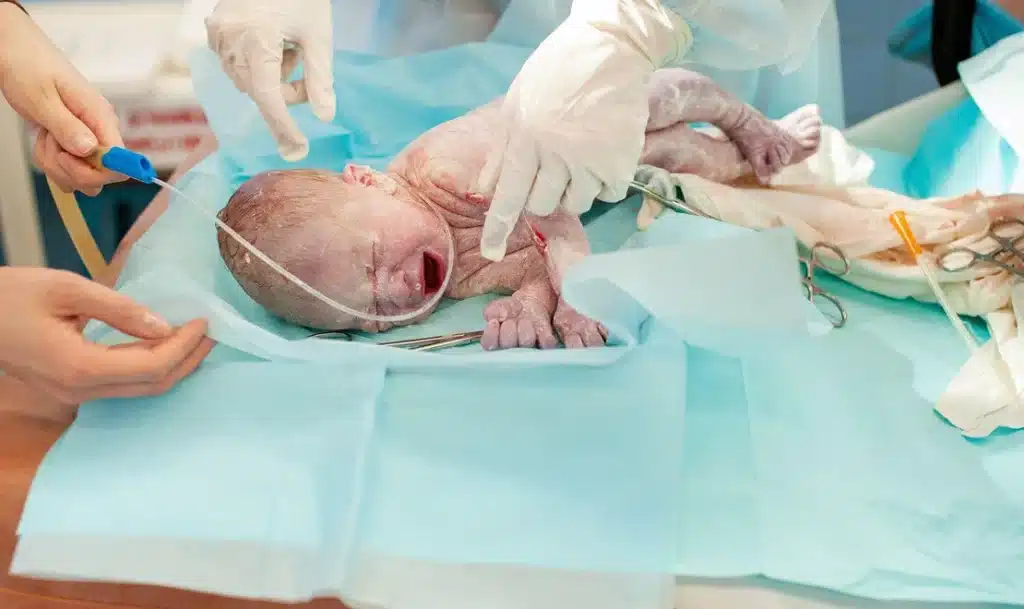
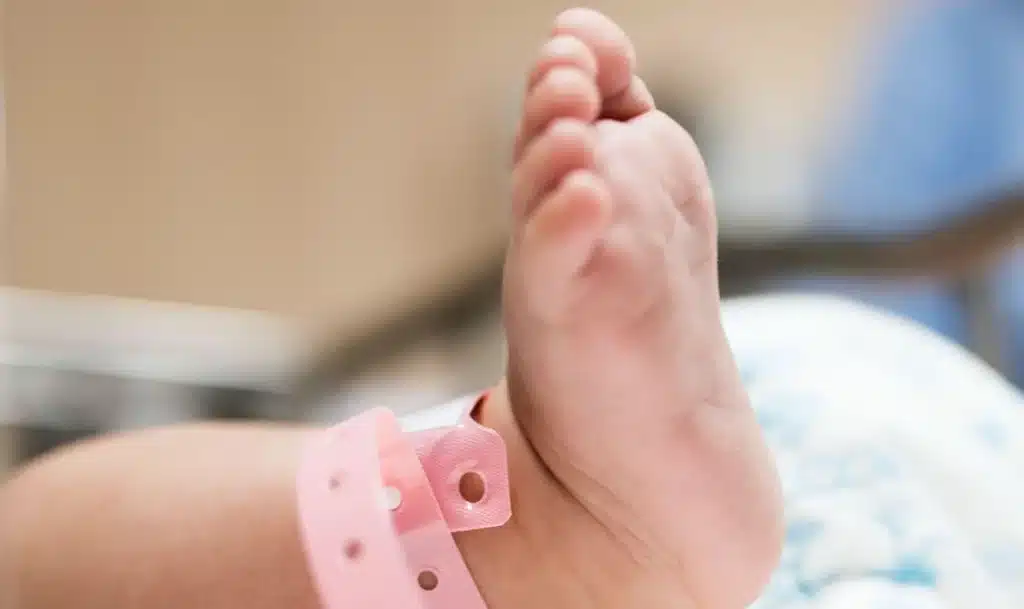
While there is no public database of malpractice lawsuits in Elizabeth, NJ, the medical errors that lead to these cases are the same here as across the country. Understanding these common mistakes is key to seeing how a tragedy can happen.
Here are the most common injury types, medical causes, and local risk factors likely relevant to Elizabeth:
| Birth Injury Type | Medical Cause / Mechanics | Local Risk Factors in Elizabeth / Union County |
|---|---|---|
| Hypoxic‐Ischemic Encephalopathy (HIE) (brain injury from lack of oxygen) | Delay in delivery when baby is in distress; failure to monitor fetal heart rate; delay in responding to cord compression, placenta issues. | Hospitals that are very busy; staffing shortages; patients with limited prenatal care or delayed prenatal visits increase risk. Elizabeth has healthcare facilities serving dense and often low-income populations, which sometimes correlates with less optimal prenatal care. |
| Cerebral Palsy (CP) | Often secondary to HIE; premature birth; complications in labor; unaddressed infections. | High preterm birth rate in NJ; maternal health issues (e.g. hypertension, diabetes) more common in communities with fewer resources. |
| Brachial Plexus / Erb’s Palsy Injuries | Shoulder dystocia (baby’s shoulder gets stuck); excessive force with forceps/vacuum; improper delivery technique. | If birth attendants aren’t well trained or don’t follow protocols precisely, risk increases. Also more risky when large babies (often due to gestational diabetes or maternal obesity) are born. |
| Neural Tube Defects or Congenital Anomalies | Issues during pregnancy (nutrition, folate deficiency), genetics, environmental exposures. | Access to proper prenatal vitamins and care; exposures in urban environment; delayed or no prenatal diagnosis may reduce ability to prepare. |
| Perinatal Stroke & Internal Bleeding | Trauma during delivery, failed monitoring in utero; undiagnosed bleeding disorders. | Hospitals must have ability to detect and treat quickly; delays in diagnosis or response increase damage. |
Some local contributing factors in Elizabeth:
Racial/ethnic/insurance disparities: Data from NJ shows that births covered by Medicaid have higher rates of preterm birth and low birthweight. If similar patterns hold in Elizabeth, that indicates more risk for injury.
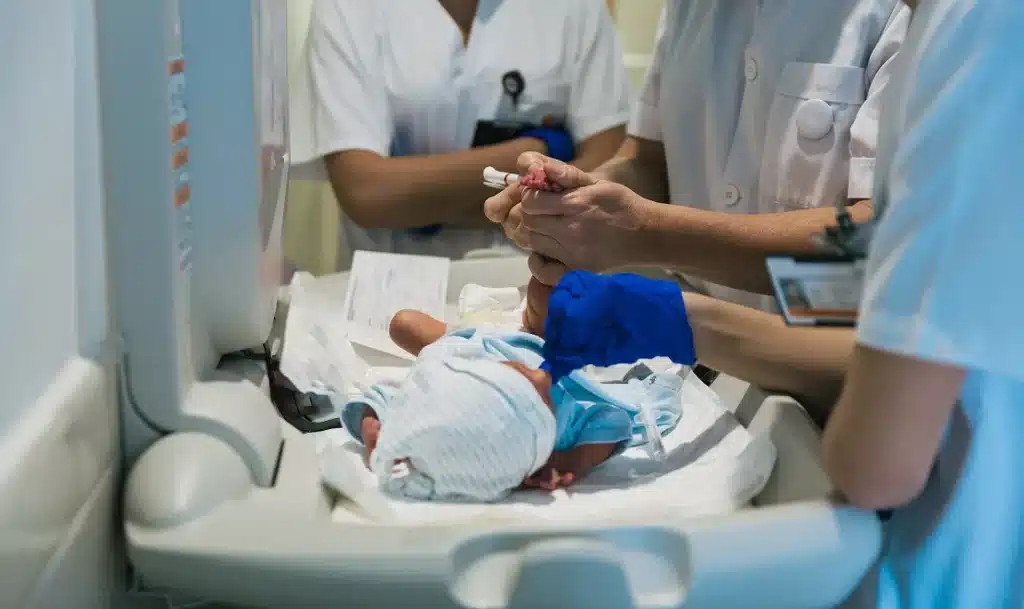
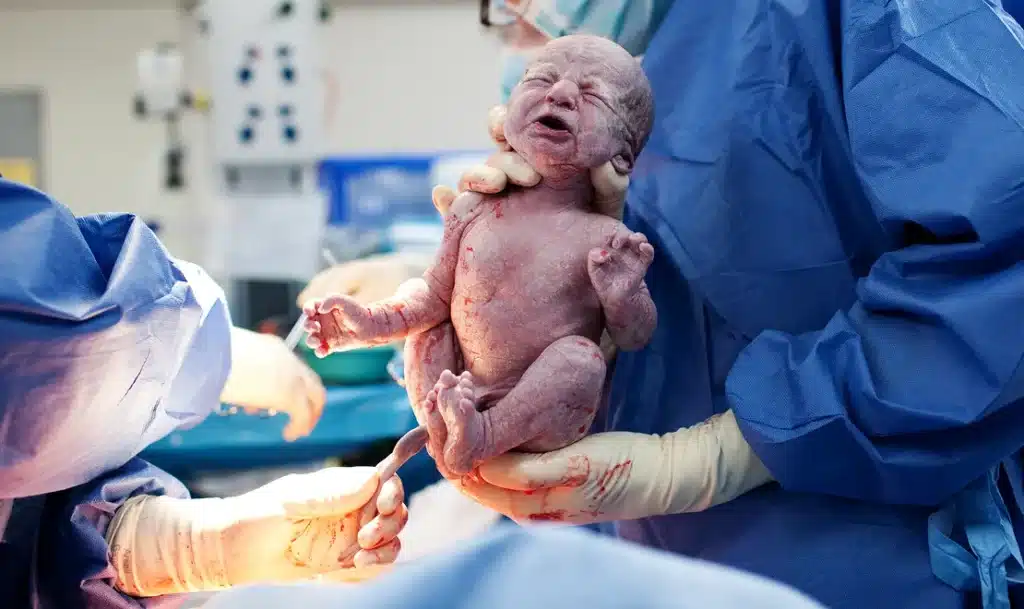
Most Elizabeth deliveries occur at major regional hospitals and medical centers in North Jersey and the surrounding areas, including:
Birth injuries can result from the actions or negligence of any medical professional involved in the delivery process, including doctors, nurses, and other staff at these hospitals.
Families in Elizabeth, Union County, Essex County, and Middlesex County can seek help from our New Jersey medical malpractice lawyers familiar with these hospitals and jurisdictions. Trinitas Regional Medical Center is the primary hospital serving families in Elizabeth, NJ, making it a key location for many birth injury cases.
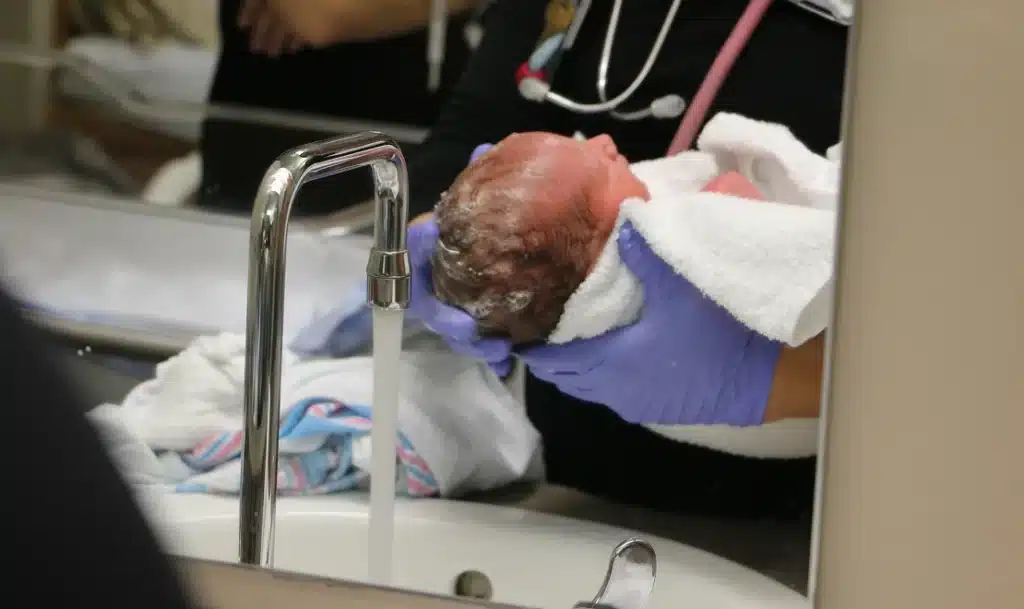
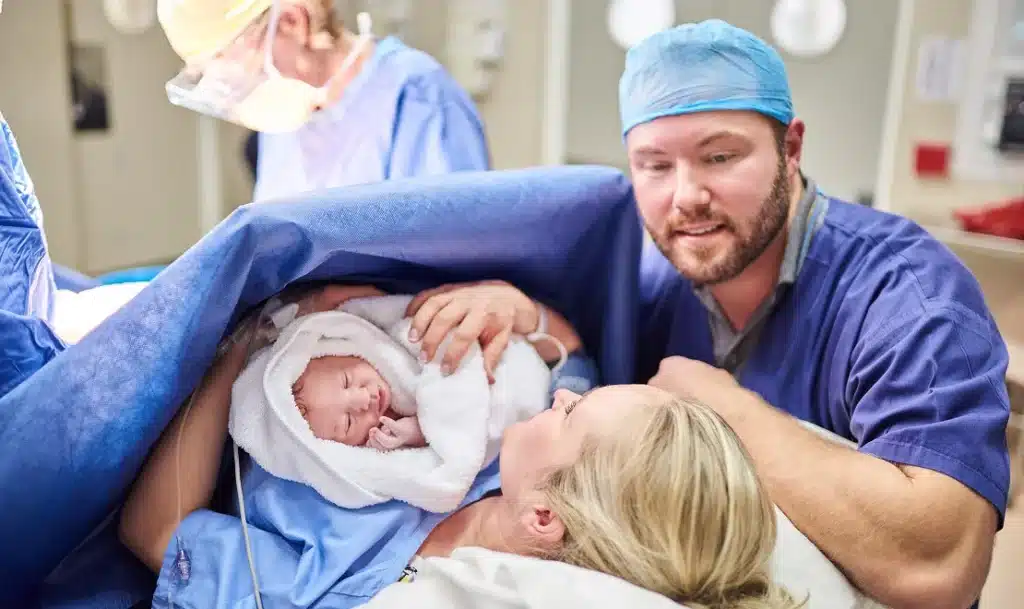
Socioeconomic disparities: patients with Medicaid or without private insurance often see lower quality in some components of prenatal or hospital care.


Birth injuries can have a profound and lasting impact on families, often resulting in significant physical, emotional, and financial challenges. Understanding the different types of birth injuries—and how they can be linked to medical malpractice or medical errors—is crucial for parents in Elizabeth, NJ who want to protect their child’s future and pursue justice.
Some of the most common types of birth injuries include:
These birth injuries are often the result of preventable factors, including medical malpractice, medical errors, or poorly managed birth complications. For example, failure to monitor fetal heart rate, delayed C-section, improper use of delivery tools, or lack of timely intervention in emergencies can all contribute to a child’s birth injury.
If your child has suffered a birth injury in Elizabeth, NJ, it’s essential to act quickly. Consulting with our experienced New Jersey birth injury lawyers can help you understand your rights, gather critical medical records, and determine whether medical negligence played a role. Our skilled birth injury lawyers will work with medical experts to review your case, identify liable parties, and pursue a birth injury lawsuit to secure compensation for your child’s medical care, including future treatments and therapies, as well as other necessary expenses.
These risk factors also point to prevention steps. Elizabeth can leverage existing healthcare systems, community programs, and legal oversight to reduce harm.
Encouraging expectant mothers to advocate for themselves—asking questions, insisting on monitoring, understanding their rights.
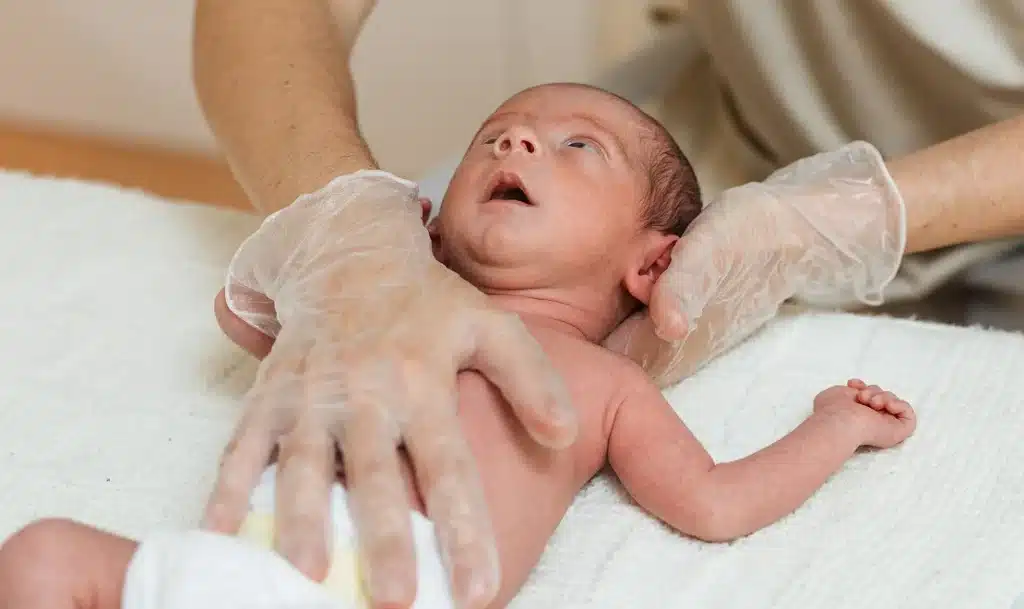
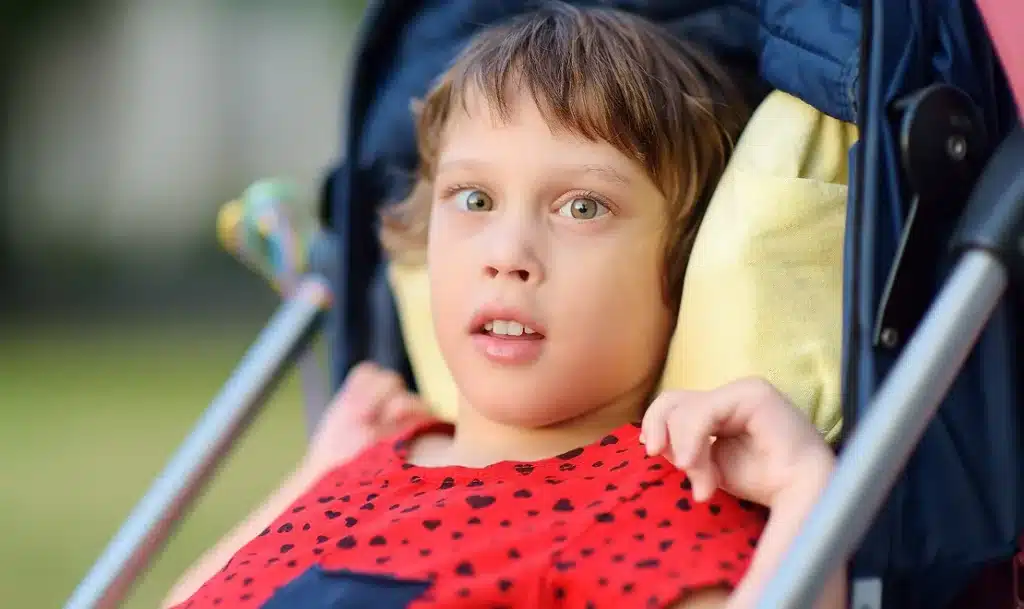
When we talk to families, a lot of surprising facts come up—things people don’t always expect. Here are some you should know:
Stress, environmental factors, and social determinants of health (housing, nutrition, exposure to pollution) play a bigger role than many realize in how resilient a baby is at birth (and how fast injuries are recognized and treated).
Many medical malpractice birth injuries can be prevented or lessened in severity if the right precautions are in place. Here are the steps you can take.
Understanding what is involved helps you see why legal accountability matters. Birth injuries can also affect the mother, leading to complications such as nerve injuries and postpartum hemorrhage.
Understanding what is involved helps you see why legal accountability matters.
Long-term care for child: Physical therapy, occupational therapy, speech therapy, surgeries, adaptive equipment, possibly home health care, and in-home care to support ongoing medical and daily needs.
Even though specific public figures for Elizabeth aren’t clearly published, we can estimate:
In New Jersey, children with long-term needs may require special schooling, Medicaid support, etc. Settlement funds are often allocated to support the child’s medical care over their lifetime.
If you suspect medical malpractice caused a birth injury, here are steps to take:
A birth injury is one of the most heartbreaking outcomes a family can face. In Elizabeth, NJ, many of the underlying risk factors are present—but so are opportunities for prevention and improved care. With early prenatal care, vigilant monitoring, hospital readiness, legal understanding, and parental advocacy, many birth injuries can be avoided.
At The Child Injury Firm, we believe in helping families get the truth, holding providers accountable when standards weren’t met, and making sure children have the care they need for the rest of their lives. If you’re in Elizabeth and you suspect something went wrong in your child’s birth, we are here to help—answer your questions, guide you through the legal process, and support you every step of the way.
Labor and delivery malpractice occurs when healthcare professionals make critical errors or act negligently during the childbirth process, leading to preventable birth injuries. These mistakes can happen at any stage of labor and delivery and may involve obstetricians, nurses, or other medical staff. Common examples include failing to properly monitor the baby’s heart rate, misusing delivery tools like forceps or vacuum extractors, or delaying a necessary C-section when signs of fetal distress are present. Such medical errors can result in devastating outcomes, including cerebral palsy, Erb’s palsy, brain injury, or other lifelong disabilities.
For families in New Jersey, the impact of a birth injury can be overwhelming—emotionally, physically, and financially. If you suspect that your child’s injury was caused by labor and delivery malpractice, it’s crucial to consult with a New Jersey birth injury lawyer who understands the complexities of New Jersey birth injury cases. Our experienced birth injury lawyers can help you investigate what happened, review medical records, and determine whether medical negligence played a role. By filing a birth injury lawsuit, you can pursue justice for your child and seek compensation to cover medical expenses, therapies, and the long-term care your child may need. Don’t hesitate to reach out to our qualified injury lawyers who can guide you through this challenging time and help protect your family’s future.
Choosing the right legal representation is one of the most important steps you can take after a birth injury. In New Jersey, it’s essential to work with medical malpractice lawyers who have a proven track record in birth injury cases and a deep understanding of the unique challenges these cases present. Our skilled birth injury lawyers will know how to analyze complex medical records, consult with medical experts, and build a compelling case on your behalf. Look for an attorney who is experienced in handling cases in Union County, Essex County, and Middlesex County, as local knowledge can be invaluable when navigating the courts and healthcare systems in these areas.
Many reputable injury lawyers offer free consultations, allowing you to discuss your situation and get advice without any upfront cost. It’s also important to choose a lawyer who works on a contingency fee basis, meaning you only pay if they successfully recover compensation for your family. Compassion, communication, and a commitment to your child’s well-being are just as important as legal expertise. The right birth injury lawyer will not only fight for your rights but also provide the support and guidance you need during this difficult time.
A birth injury lawsuit is a specialized type of medical malpractice claim that seeks to hold healthcare providers accountable for injuries sustained by a child during birth. These cases require a thorough investigation, including a detailed review of medical records, expert testimony, and documentation of the child’s injuries and ongoing treatment. In Elizabeth, NJ, and throughout New Jersey, families can work with a New Jersey birth injury lawyer to build a strong case and pursue justice for their child.
Filing a birth injury lawsuit can help families recover compensation for a wide range of damages, including medical expenses, rehabilitation costs, lost wages, and pain and suffering. In some cases, if the healthcare provider’s actions were especially reckless, punitive damages may also be awarded. Our experienced birth injury lawyers will guide you through every step of the process, from gathering evidence to negotiating with insurance companies or representing you in court. Many law firms in New Jersey, including those serving Elizabeth, offer free consultations to help you understand your options and determine the best path forward. By taking legal action, you can help ensure your child receives the care and support they need, hold negligent providers accountable, and help prevent future medical errors.
Securing maximum compensation for your child’s birth injury is essential to ensure they receive the best possible care and support throughout their life. Working with an experienced New Jersey birth injury lawyer is the most effective way to achieve this goal. Our knowledgeable attorneys will understand the intricacies of medical malpractice law, know how to gather and present compelling evidence, and have the negotiation skills needed to deal with insurance companies and healthcare providers.
Maximum compensation in a birth injury lawsuit can include coverage for all past and future medical care, physical therapy, adaptive equipment, special education, and even home modifications. In some cases, families may also be entitled to compensation for pain and suffering, emotional distress, and punitive damages if the provider’s conduct was especially egregious. Many medical malpractice lawyers in New Jersey—including The Child & Birth Injury Firm—have a strong track record of securing substantial settlements and verdicts for families affected by birth injuries. By choosing a reputable birth injury lawyer, you can be confident that your family’s interests are protected and that you are pursuing every available avenue for financial recovery and justice.
If you believe your child was harmed due to medical malpractice in Elizabeth, you deserve answers, justice, and lifelong care.
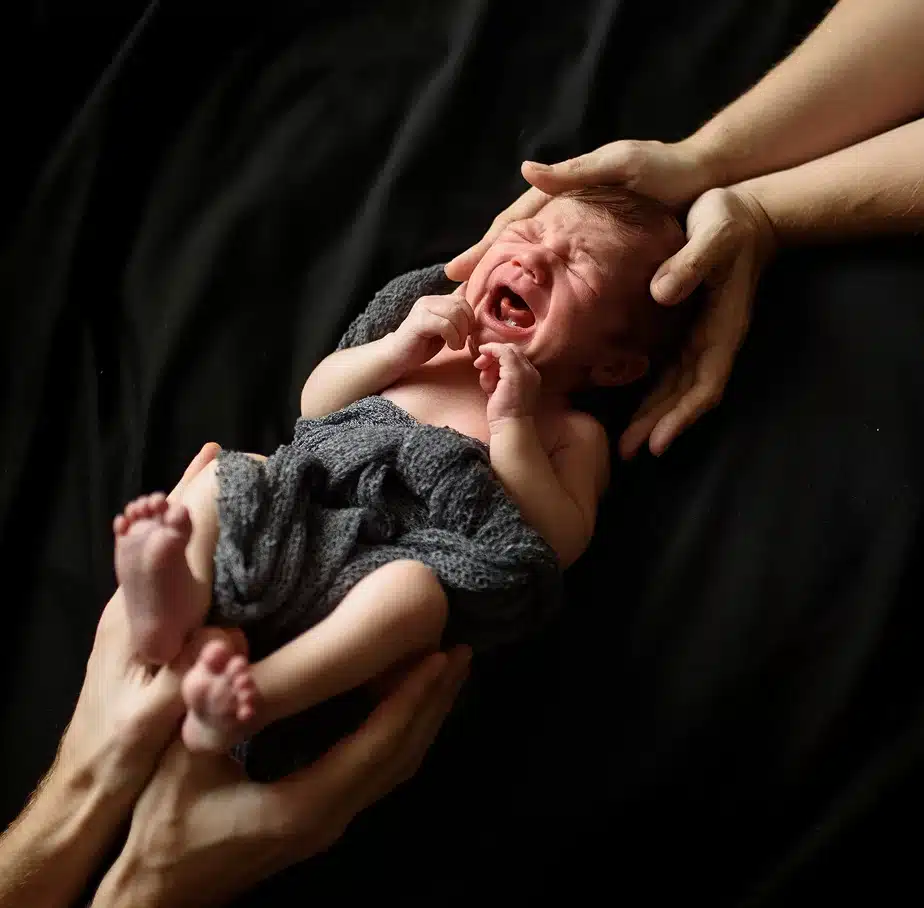
These resources offer medical information, support groups, and programs for children with disabilities resulting from birth injuries, with a strong focus on the Elizabeth area.
This organization provides advocacy, support, and training to children and adults with intellectual and developmental disabilities and their families. They have a strong presence in Elizabeth and the rest of Union County, offering a range of services from early intervention to adult programs. Website: https://arcunion.org/
This organization provides support services to individuals with physical and intellectual disabilities, including specialized educational programs and therapy. They have two facilities in Union and Cranford, which are close to Elizabeth. Website: https://cpofnj.org/
This is a state-run system that provides services to children from birth to age three with developmental delays or disabilities. It is a crucial resource for early therapy and support. You can call their statewide referral number or contact the Special Child Health Services Case Management Unit in Union County. Website: https://www.nj.gov/health/fhs/eis/
Kessler has a location in Elizabeth and offers a range of physical, occupational, and speech therapies. Their services can be vital for a child recovering from or managing a birth injury. Website: https://www.kesslerrehabilitationcenter.com/contact/find-a-location/nj/elizabeth/elizabeth-elmora-ave/
Located directly in Elizabeth, Trinitas Regional Medical Center provides a range of women’s and children’s health services. While it is a medical facility, it can be a vital local resource for continued care and information for children with birth-related injuries. Website: https://www.rwjbh.org/trinitas-regional-medical-center/
The most urgent step is to ensure your child receives proper medical care, whether at Trinitas Regional Medical Center in Elizabeth or another facility with a higher-level neonatal unit nearby. Once your child is stable, begin collecting records such as delivery notes, test results, and NICU reports. From there, consult with an experienced medical malpractice lawyer for free advice and to evaluate whether you have a potential birth injury claim. Many law firms offer free consultations for evaluating birth injury cases. Our experienced birth injury attorneys who know New Jersey malpractice law can help guide you through the next steps.
In New Jersey, you usually have two years from the date of injury (or longer for babies)—or from when the injury was reasonably discovered—to file. For injuries involving minors, this timeline may extend, but waiting too long makes cases harder.. Speaking with our lawyers early is crucial so that deadlines aren’t missed.
A successful claim may provide damages to cover: medical treatments, therapies, mobility or communication devices, special education programs, loss of future earnings, and pain and suffering. Compensation is designed to ensure your child’s entire lifetime of needs is financially supported. Damages can also include compensation for emotional distress and medical expenses.
Yes. New Jersey malpractice cases involve technical requirements like the Affidavit of Merit, and our lawyers with experience handling cases out of Union County—including Trinitas Regional Medical Center or nearby hospitals in Newark and Jersey City—will know how to navigate both the legal and medical system effectively. It is important to hire medical malpractice lawyers who are experienced in handling medical malpractice cases and medical malpractice claims.
No, most reputable firms, including The Child Injury Firm, work on a contingency fee basis, meaning families pay nothing upfront. Legal fees are only collected if your case is successful. This ensures families can pursue justice without financial risk.
Only an experienced attorney working with medical experts can answer that with confidence. Some conditions—like cerebral palsy or hypoxic-ischemic encephalopathy—may stem from unavoidable causes, but many are linked to preventable errors like improper monitoring or a delayed C-section. A legal review of your records will help determine the difference.
Trinitas Regional Medical Center is the primary hospital serving Elizabeth families, though many high-risk pregnancies are referred to nearby institutions such as University Hospital (Newark) or Newark Beth Israel Medical Center, both of which have advanced NICUs. Knowing where negligence occurred is key to building the case.
The most frequent malpractice-related injuries we see include cerebral palsy due to oxygen deprivation, Erb’s palsy from shoulder dystocia mishandling, hypoxic-ischemic encephalopathy (HIE), spinal cord injuries from excessive force, and fractures linked to improper use of delivery instruments. Erb’s palsy is a common injury caused by mishandling shoulder dystocia during delivery.
Every case is unique, but birth injury settlements and verdicts are among the highest-value types of malpractice cases because they account for lifetime care. Awards can reach millions of dollars, depending on the severity of the injury and the cost of medical and support services for the child long term. Serious injuries and wrongful death lawsuits can result in higher compensation due to the severity of harm when a child suffered due to a healthcare provider’s negligence. Punitive damages may be available in cases where the medical professional’s actions were especially reckless.
Focus on gathering documentation: prenatal records, labor notes, fetal monitoring strips, NICU charts, and all bills. Write down every detail you remember about the delivery at Trinitas or any nearby facility—what was said, how staff responded, and anything unusual. These details often make a powerful difference in proving malpractice.
Catastrophic child and birth injuries can shatter the lives of not just the babies and children, but also their families. Families are left to navigate a complex maze of medical challenges, financial burdens, and emotional turmoil. But, this is where Jeffrey Killino and his team of dedicated lawyers can provide the support and guidance families need most.
For over 2 decades, Jeffrey Killino and his team have secured life-changing results for babies and children facing catastrophic injuries. Our clients gain access to the best medical care, financial security, and peace of mind, knowing their futures are protected.
Jeffrey Killino and his team of child and birth injury lawyers are committed to go beyond securing multi-million dollar settlements and verdicts. We measure our success by our positive impact on our clients’ lives. We’re dedicated to supporting them throughout their journey, even after their case is resolved.
Jeffrey Killino and his team of child and birth injury lawyers are committed to more than just securing multi-million dollar settlements and verdicts. We measure our success by our positive impact on our clients’ lives, helping them access the best medical care, achieve financial security, and find peace of mind. We also actively work to prevent injuries and promote safety for everyone.

Text With Us
We'll text you!
"*" indicates required fields
By submitting, you agree to be contacted about your request & other information using automated technology. Message frequency varies. Msg & data rates may apply. Text STOP to cancel. Privacy Policy
Call Me
We'll call you!
"*" indicates required fields
By submitting, you agree to be contacted about your request & other information using automated technology. Message frequency varies. Msg & data rates may apply. Text STOP to cancel. Privacy Policy
Book A Consultation
We're ready to answer your questions!
Email Us
We're available by email!
"*" indicates required fields
By submitting, you agree to be contacted about your request & other information using automated technology. Message frequency varies. Msg & data rates may apply. Text STOP to cancel. Privacy Policy
Text With Us
We'll text you!
"*" indicates required fields
By submitting, you agree to be contacted about your request & other information using automated technology. Message frequency varies. Msg & data rates may apply. Text STOP to cancel. Privacy Policy
Call Me
We'll call you!
"*" indicates required fields
By submitting, you agree to be contacted about your request & other information using automated technology. Message frequency varies. Msg & data rates may apply. Text STOP to cancel. Privacy Policy